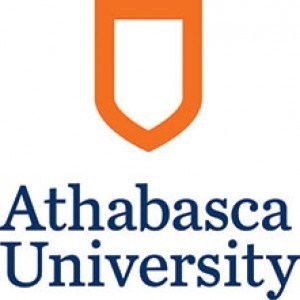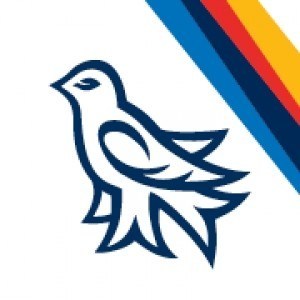Photos of university
The Bachelor of Arts in History at Athabasca University offers students an in-depth exploration of historical events, themes, and processes that have shaped human civilization across different eras and regions. This undergraduate program is designed to develop critical thinking, analytical skills, and a comprehensive understanding of historical contexts, enabling graduates to interpret and evaluate past societies, cultures, and significant developments. Through a flexible, online delivery model, students can customize their studies to fit their personal interests and career goals while balancing other commitments. The curriculum includes a wide range of courses covering ancient, medieval, modern, and contemporary history, as well as specialized topics such as Canadian history, world history, social movements, and historical research methodologies. Emphasis is placed on developing the ability to conduct independent research, assess primary and secondary sources, and communicate findings effectively through written work and presentations. Graduates of the program are well-equipped for careers in education, research, public history, cultural organizations, government agencies, and other fields that value strong analytical and communication skills. The program's elective options allow students to further explore related disciplines, such as political science, literature, or anthropology, providing a well-rounded academic experience. Athabasca University's commitment to flexible online learning means that students from across Canada and internationally can access high-quality education at their own pace and convenience. With a focus on critical inquiry and evidence-based analysis, the Bachelor of Arts in History prepares students to become informed, engaged citizens and competent professionals capable of contributing thoughtfully to society.
The Bachelor of Arts in History Concentration at Athabasca University offers students an in-depth exploration of human history, covering a wide range of periods, regions, and themes. This program is designed for individuals passionate about understanding the past and its influence on the present and future. Through comprehensive coursework, students will examine significant historical events, movements, and figures, as well as the socio-cultural, political, and economic contexts in which they occurred. The curriculum emphasizes critical thinking, analysis of primary and secondary sources, and the development of skills essential for research and effective communication. Students have the opportunity to specialize within the field of history, choosing courses that align with their interests, such as Canadian history, world history, or thematic studies like gender, race, or technology in history. The flexible online format enables students to study at their own pace, balancing education with personal and professional commitments. The program also prepares graduates for various careers in education, research, museums, government, and other fields requiring strong analytical and written skills. Throughout their studies, students will engage with renowned historians, participate in discussions, and produce original research papers. By the end of the program, graduates will have a broad understanding of historical processes and methodologies, equipping them to contribute thoughtfully to discussions about the past and its ongoing impact. Whether pursuing further academic studies or entering the workforce, students will emerge with a robust foundation in history and critical inquiry.
Program Requirements:
The Bachelor of Arts in History with Concentration at Athabasca University is designed to provide students with a comprehensive understanding of historical events, trends, and methodologies. To successfully complete the degree, students must fulfill a series of core and elective course requirements totaling a minimum of 120 credit hours. The curriculum is structured to ensure a balanced development of analytical skills, research abilities, and historical knowledge across various periods and geographical regions.
Students are required to complete foundational courses in Western and World History, which establish critical understanding of key historical processes and concepts. These include courses in Early Medieval History, Modern European History, and Global History from the 19th Century to Present. Additionally, students must undertake specialized courses that explore particular themes such as history of gender, indigenous histories, or economic history, depending on their interests and academic goals.
To develop research competencies, students must engage in at least one major historiographical or research methodology course, often a Research Methods in History class, which emphasizes archival research, critical analysis, and scholarly writing. An integral part of the program involves completing a senior research project or thesis, which requires selecting a topic, conducting independent research, and presenting findings in a comprehensive paper. This project typically accounts for a significant portion of the degree credit requirements.
Elective courses offered within the program allow students to tailor their studies towards specific historical interests, such as Asian history, Latin American history, or Canadian history. Transfer credits from previous post-secondary studies may be accepted, subject to evaluation, which can reduce the total number of required courses.
Language proficiency requirements are generally not mandatory unless students choose courses that involve primary source analysis in foreign languages. Continuous assessment through essays, exams, and participation is used to evaluate student progress throughout the program.
The program also encourages students to participate in internships or community-based historical projects to gain practical experience. In total, students should plan to dedicate approximately four years of full-time study or its equivalent to complete all program requirements successfully. Upon completing all coursework, research projects, and assessments, students are awarded the Bachelor of Arts in History with Concentration diploma, signifying their mastery of core historical knowledge and research skills as specified by Athabasca University.
The financing of the Bachelor of Arts in History Concentration at Athabasca University typically involves a combination of government funding, student tuition fees, financial aid, and scholarship opportunities. As a primarily online university dedicated to accessible education, Athabasca University offers competitive tuition rates for domestic and international students, with various payment options to accommodate different financial situations. Canadian students generally benefit from provincial student loan programs, such as Saskatchewan Student Loans, Alberta Student Loans, or other provincial financial aid programs, depending on their residence. International students are encouraged to seek private loans or scholarships specific to international students, as well as potential aid from their home countries.
Athabasca University provides details about tuition fees on its official website, emphasizing affordability and flexibility. The tuition fee structure is typically divided into per-course or per-credit costs, allowing students to plan their finances effectively. Moreover, the university offers a variety of scholarships and bursaries based on academic achievement, financial need, or specific criteria such as program relevance. These awards can significantly offset educational expenses and make degree completion more accessible.
Financial aid through government loans generally requires students to complete applications and meet eligibility criteria, which often include demonstrating financial need and maintaining satisfactory academic progress. The university also promotes the use of external funding sources, including private foundations and organizations that support higher education. Athabasca University encourages prospective students to consult with the financial aid office for personalized guidance on available support and application procedures.
In addition to typical funding sources, students may also consider employer-sponsored education assistance programs if their employer offers educational benefits. Part-time work opportunities are sometimes available on or near the university campus or remotely, allowing students to earn income to help finance their studies. Given the flexibility of online learning, students can often better manage work and study commitments, reducing financial stress.
Overall, the financing of the History Concentration program at Athabasca University is designed to be accessible and flexible, recognizing the diverse financial backgrounds of students. The university's commitment to affordable education, combined with extensive scholarship opportunities and financial aid options, aims to enable students to complete their degree without undue financial hardship.
The Bachelor of Arts in History with a concentration at Athabasca University offers students a comprehensive exploration of historical events, periods, and themes from diverse global regions. This program is designed to develop critical thinking, analytical skills, and an understanding of historical processes, providing students with a solid foundation for careers in education, research, government, public policy, and cultural sectors. The curriculum emphasizes both historical methodology and content, encouraging students to engage with primary and secondary sources to construct well-informed interpretations of the past. Athabasca University's flexible learning approach allows students to study at their own pace, accommodating working professionals and those with other commitments. The program includes a series of core courses in history, which cover topics such as ancient civilizations, modern world history, history of North America, and social and cultural developments over time. Electives provide opportunities for specialized study in areas such as gender history, indigenous history, or global history, enabling students to tailor their education to their interests and career goals. Assessment methods typically include written assignments, research projects, and exams, fostering skills in scholarly research and academic writing. Throughout the program, students may also have opportunities for experiential learning, such as engaging with local archives or participating in historical projects. The university’s online platform supports collaborative learning, discussions, and interactions with instructors and fellow students. Graduates from this program are well-equipped to pursue postgraduate studies, enter professional fields related to history, education, or public service, or enhance their understanding of historical contexts relevant to their careers. The program's flexible structure and comprehensive coverage of historical topics make it a suitable choice for those seeking a broad yet in-depth understanding of history, delivered through an accessible online format.



